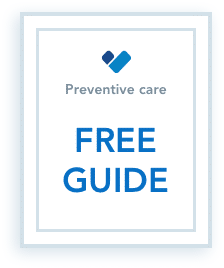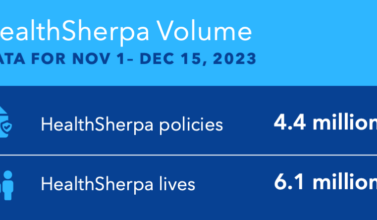20 Healthcare Reporters to Follow on Twitter
Keeping up with the many layers of healthcare — your own personal health insurance and utilization needs, healthcare reform, and healthcare politics — can be tough. George Kalogeropoulos, HealthSherpa’s Co-founder and CEO, recently got on Twitter and is quickly finding that the healthcare reporters and journalists he’s looked to for years are very active in the Tweetosphere. Here are some of his favorites to keep you in the know during open enrollment season and all year long.
Sam Baker, Caitlin Owens and Bob Herman (Axios)
The Axios Vitals newsletter (compiled by Sam Baker) is a must-read for anyone interested in straightforward news on the day-to-day workings of healthcare attitudes and public policy. It also links to longer stories by the Axios writing staff, especially Caitlyn and Bob. It’s great content that makes you feel smart about healthcare.
Julie Rovner (Kaiser Health News)
Julie Rovner literally wrote the book on healthcare — Health Care Politics and Policy A to Z. After 16 years covering healthcare for NPR, Rovner is now with Kaiser Health News, where her podcast “What the Health?” is an essential listen that’s just the right length (usually about 25 minutes) to go a little deeper on the topics of the day. Other healthcare reporters on this list are frequent guests, along with healthcare policy leaders. Subscribe and feel smarter for only 20 minutes time commitment per week!
Sarah Kliff and Dylan Scott (Vox)
Among the many contributions that Sarah Kliff has made to the national healthcare discussion is the fantastic ER bill project, which seeks to uncover the way emergency rooms overbill patients and insurers. She did the same thing with her own bills from her recent pregnancy and child birth. Dylan Scott provides solid and entertaining commentary on the intersection of healthcare and politics — and also throws in his share of Cleveland sports commentary as well!
Reed Abelson (New York Times)
Abelson provides the solid reporting you would expect from the Paper of Record. Recent articles include one on innovative approaches large employers are using to tackle healthcare costs and employee healthcare literacy.
Margot Sanger-Katz, Aaron Carroll and Austin Frakt (NYT Upshot)
Where the Times reporters get to the essences through old-fashioned reporting, the Upshot team reports from a largely data-driven perspective. Carroll, a pediatrician and professor in Indiana, brings a consistent medical professional perspective to stories like this one about how we got an employer-based healthcare system in the U.S. Frakt is taking on an original-sin approach of late, first mapping how healthcare costs started to boom in the early ‘80s and more recently providing the same historical mapping for prescription drug prices starting in the ‘90s. Sanger-Katz provides a data-driven look at politics and policy, like this article on Medicaid and voting habits, to see what’s working as intended for politicians and, frequently, what they’re doing totally wrong. She’s also a frequent guest on Julie Rovner’s “What the Health?” podcast for Kaiser Health News.
Shelby Livingston (Modern Healthcare)
Livingston provides consistent, balanced coverage of the industry for those who are in the industry. But writes in a way that anyone can gain from her reporting insights. Her recent coverage of the individual market numbers serves as just one example.
Zachary Tracer (Business Insider)
Tracer largely covers the industry from a business perspective, which is far more interesting and enlightening to a general audience than it might sound at first. He also got much love from fellow healthcare reporters recently for a story about how he got serious about selecting his company-offered health benefits this year. Serious, go read it — it’s a great first-person view on how tough it can be to choose the right plan.
Bertha Coombs (CNBC)
Coombs has covered healthcare for CNBC for more than a decade. She consistently finds new and human-centered topics related to the business side of healthcare politics and policy. You get a lucid and engaging sense of her perspective in her great written piece, “Why we should be ornery about healthcare — it’s a good thing.”
Dan Diamond, Paul Demko, and Darius Tahir (Politico)
The healthcare policy beat is covered thoroughly by the team at Politico. It starts with Dan Diamond’s authoritative M-F daily newsletter Politico Pulse. Both national and local angles are covered, with an eye toward left-right differences and ways to bridge those gaps. A recent example is Paul Demko’s recent “How one state that hates Obamacare still makes it work.”
Stephanie Armour (Wall Street Journal)
Armour provides comprehensive coverage of the top issues in healthcare policy and politics. She also has a particular focus on the issues surrounding national politics. Recent examples include a roundup of what impact the midterm election had on the healthcare debate going forward.
Paige Winfield Cunningham (Washington Post)
Cunningham writes the Post’s “The Health 202,” which is part of their PowerPost section aimed toward providing important insights for business and political leaders. But it’s good stuff for the rest of us, too. Here’s a recent article she wrote on what to look for during this year’s open enrollment period for individual coverage.
Jonathan Cohn (Huffington Post)
Cohn is the author of Sick: The Untold Story of America’s Health Care Crisis-and the People Who Pay the Price and a long-time editor for the Huffington Post. He also provides a solid stream of retweets that can connect you to the healthcare policy world of Twitter.
Allison Bell (ThinkAdvisor)
Bell writes from the industry perspective about insurance and benefits. Her coverage is both comprehensive and even-handed, making it easy to understand a very complex business from inside the business.














Does any one follow Kaiser?
I am having a terrible time with Kaiser and i am lost and do not know how to get help
good comment loved your page keep up the work your hard work will pay off excellent page.